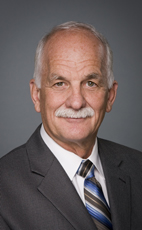Mr. Speaker, in response to (a) and (b), in May 2008, the Minister of Public Safety announced the establishment of the Task Force on Illicit Tobacco Products. The task force is led by PS and includes departments and agencies that are involved in tackling the issue of contraband tobacco, including the Royal Canadian Mounted Police, RCMP, the Canada Border Services Agency, CBSA, the Canada Revenue Agency, Finance Canada, Agriculture and Agri-Food Canada, Health Canada and Indian and Northern Affairs Canada.
The task force is mandated to identify the facilitating circumstances for each source of illicit tobacco, scope out the issue and what is currently being done to address the problem, identify gaps in our collective efforts, and explore approaches to address the illicit trade in tobacco products.
In July 2009, after extensive consultation with federal partners and industry stakeholders, the task force completed its analysis in which it identifies several options to reduce both the supply of, and demand for, illicit tobacco products in Canada. A copy of the task force report is available on the PS website; however, there are several options that have not been released as they are still under consideration.
One of the options considered by the task force included the increased control of raw materials, including cigarette papers and acetate filter tow, which are used in the production of contraband tobacco products. Upon further examination of the potential control of raw materials, the task force came to the conclusion that, with the exception of tobacco itself, there is no raw material that is exclusively used in the manufacture of contraband tobacco products. For example, in addition to its application in contraband tobacco products, acetate filter tow is also used in the manufacture of gauze and feminine hygiene products. As such, raw materials would be very difficult to regulate without causing a significant negative impact on the operations of legitimate businesses, particularly those not involved in the manufacture of tobacco products.
In response to (c), in July 2008, the Government of Canada joined with all provinces in a landmark settlement concerning tobacco smuggling which saw two major Canadian tobacco companies agree to pay $1.15 billion in fines. As a result of this settlement, the Minister of National Revenue announced a $20 million investment to combat contraband tobacco and to reduce the amount of tobacco consumed.
As part of the $20 million investment, the Government of Canada announced on May 28, 2010, several key initiatives that were developed by the task force to combat contraband tobacco:
$7.41 million for the establishment of an RCMP-led Combined Forces Special Enforcement Unit--Contraband Tobacco Team, CFSEU-CTT, operating in Cornwall. The CFSEU-CTT will target criminal networks engaged in the manufacture and distribution of contraband tobacco products, complementing the current enforcement efforts in that region;
$3.48 million for the CBSA to establish a detector dog service focused on detecting and seizing contraband tobacco at marine ports of entry in Montreal and Vancouver, which are the regions with the highest rate of contraband tobacco activity; and
$4.97 million for the Canada Revenue Agency to implement a multimedia awareness campaign, comprised of television, print and radio ads, that will emphasize the link between buying contraband tobacco products and supporting the activities of organized crime groups. The campaign will be deployed throughout Canada with a focus on Ontario and Quebec, provinces with high rates of contraband tobacco consumption.
It is clear that any enforcement, awareness and/or control mechanisms for contraband tobacco requires the continued cooperation and partnership between federal, provincial and territorial governments, first nations governments, the law enforcement community and industry stakeholders.

